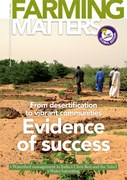AUTHOR
Month: December 2012
Articles
 Kaluchi Thakarwadi: Rejuvenated landscape, rejuvenated lives
December 23rd, 2012
Kaluchi Thakarwadi: Rejuvenated landscape, rejuvenated lives
December 23rd, 2012
Kaluchi Thakarwadi is a small, remote settlement in the district of Ahmednagar, in Maharashtra, in the semi-arid zone in the rain shadow of India’s western mountains. Rainfall is unreliable, so there is chronic water scarcity, with recurring shortages of food and fodder. Six years ago a broad watershed management programme was established, which has already … Read more
Opinion: Grass for carbon
December 23rd, 2012
(December 2012) David Millar looks at some of the obstacles to tree-planting in northern Ghana and identifies other strategies for combating climate change.Better grassland management provides an opportunity for northern Ghana to participate in the global efforts to reduce carbon dioxide emissions, benefit from the Clean Development Mechanisms (CDM), provide income generation opportunities and efficiently … Read more
Globally connected: News from the AgriCultures Network
December 23rd, 2012
During the past 27 years, our magazines have shown many of the ways in which farmers and organisations are fighting desertification. Combined with scientific knowledge, the approaches based on farmers’ ancestral knowledge and inventiveness can make a real difference, helping to conserve natural resources and give high yields. A quick review of the hundreds of … Read more
Call for articles – SRI: A scaling up success
December 23rd, 2012
The System of Rice Intensification (SRI) is a simple, low cost approach that is quietly transforming rice production around the world. It is now practiced by farmers in more than thirty countries. SRI is a set of practices based on single, widely-spaced, early transplants which are then grown under a water regime that alternates wet … Read more
 FROM DESERTIFICATION TO VIBRANT COMMUNITIES
December 23rd, 2012
FROM DESERTIFICATION TO VIBRANT COMMUNITIES
December 23rd, 2012
Farming Mattters | 28.4 | December 2012 Sustainable agriculture in dry and degraded areas is about the resilience of farmers and ecosystems. With examples from different parts of the world, issue 28.4 of Farming Matters shows the importance of local knowledge and appropriate policies. Desertification and land degradation are not just natural phenomena. They are … Read more
 UNCCD: Striving for a land-degradation neutral world
December 23rd, 2012
UNCCD: Striving for a land-degradation neutral world
December 23rd, 2012
Defining “the future we want” for the planet we rely on, world leaders at Rio+20 resolved to achieve a land-degradation neutral world. Forging a global partnership to reverse and prevent desertification/land degradation and to mitigate the effects of drought in affected areas in order to support poverty reduction and environmental sustainability, the United Nations Convention … Read more
 Roles and regulations for trees on farmland
December 23rd, 2012
Roles and regulations for trees on farmland
December 23rd, 2012
Since the 1980s, some 6 million hectares of agriculture land in the Sahel have been covered with trees. Yet, this area could be much larger. The support provided to the rural areas of most Sahelian countries depends on public funding and on the contributions of international donor agencies, so the number of projects, or the … Read more
 Evidence of success
December 23rd, 2012
Evidence of success
December 23rd, 2012
Chris Reij – Working as a sustainable land management specialist at the Centre for International Cooperation of the Free University in Amsterdam, and as a Senior Fellow at the World Resources Institute, in Washington, Chris Reij is the facilitator of “African Re-greening Initiatives”. This is a platform that supports farmers in the process of adapting … Read more
 Development 3.0: Development practice in transition
December 23rd, 2012
Development 3.0: Development practice in transition
December 23rd, 2012
Following over a half-century of “technology transfer” and “participation”, the paradigm of agricultural modernisation appears to have reached a limit. Directly related to growing concerns over the world’s food systems, there is a sense of welcomed change taking place. At the centre lays a commonly neglected resource: the creativity embedded in peoples’ daily practices and … Read more
 True champions
December 23rd, 2012
True champions
December 23rd, 2012
Farmers’ knowledge and experience has not been adequately translated into policies and strategies by governments, the private sector or civil society organisations. In general, not enough is known about these transformation processes. Is there a glass ceiling that limits the spread of good agrobiodiversity practices? The agrobiodiversity@knowledged programme, started by Oxfam Novib and Hivos, aims … Read more
Month: December 2012
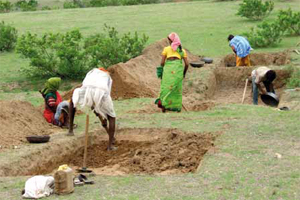 Kaluchi Thakarwadi: Rejuvenated landscape, rejuvenated lives
Kaluchi Thakarwadi: Rejuvenated landscape, rejuvenated lives
Kaluchi Thakarwadi is a small, remote settlement in the district of Ahmednagar, in Maharashtra, in the semi-arid zone in the rain shadow of India’s western mountains. Rainfall is unreliable, so there is chronic water scarcity, with recurring shortages of food and fodder. Six years ago a broad watershed management programme was established, which has already … Read more
(December 2012) David Millar looks at some of the obstacles to tree-planting in northern Ghana and identifies other strategies for combating climate change.Better grassland management provides an opportunity for northern Ghana to participate in the global efforts to reduce carbon dioxide emissions, benefit from the Clean Development Mechanisms (CDM), provide income generation opportunities and efficiently … Read more
During the past 27 years, our magazines have shown many of the ways in which farmers and organisations are fighting desertification. Combined with scientific knowledge, the approaches based on farmers’ ancestral knowledge and inventiveness can make a real difference, helping to conserve natural resources and give high yields. A quick review of the hundreds of … Read more
The System of Rice Intensification (SRI) is a simple, low cost approach that is quietly transforming rice production around the world. It is now practiced by farmers in more than thirty countries. SRI is a set of practices based on single, widely-spaced, early transplants which are then grown under a water regime that alternates wet … Read more
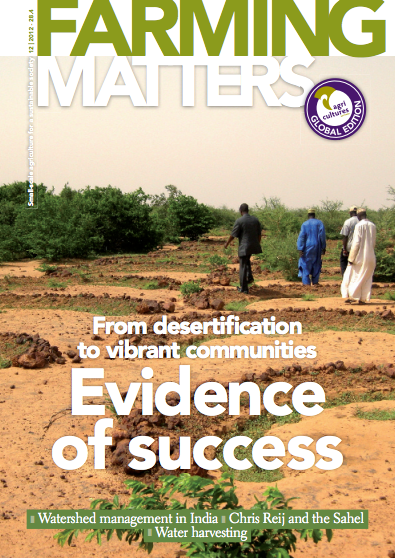 FROM DESERTIFICATION TO VIBRANT COMMUNITIES
FROM DESERTIFICATION TO VIBRANT COMMUNITIES
Farming Mattters | 28.4 | December 2012 Sustainable agriculture in dry and degraded areas is about the resilience of farmers and ecosystems. With examples from different parts of the world, issue 28.4 of Farming Matters shows the importance of local knowledge and appropriate policies. Desertification and land degradation are not just natural phenomena. They are … Read more
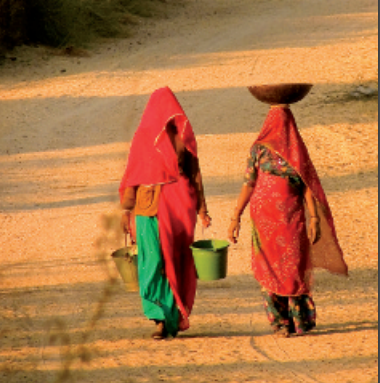 UNCCD: Striving for a land-degradation neutral world
UNCCD: Striving for a land-degradation neutral world
Defining “the future we want” for the planet we rely on, world leaders at Rio+20 resolved to achieve a land-degradation neutral world. Forging a global partnership to reverse and prevent desertification/land degradation and to mitigate the effects of drought in affected areas in order to support poverty reduction and environmental sustainability, the United Nations Convention … Read more
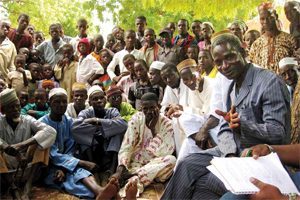 Roles and regulations for trees on farmland
Roles and regulations for trees on farmland
Since the 1980s, some 6 million hectares of agriculture land in the Sahel have been covered with trees. Yet, this area could be much larger. The support provided to the rural areas of most Sahelian countries depends on public funding and on the contributions of international donor agencies, so the number of projects, or the … Read more
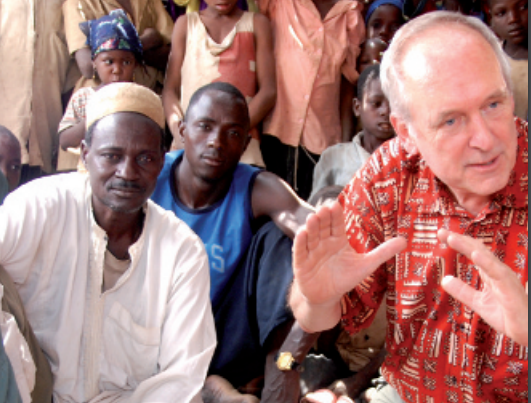 Evidence of success
Evidence of success
Chris Reij – Working as a sustainable land management specialist at the Centre for International Cooperation of the Free University in Amsterdam, and as a Senior Fellow at the World Resources Institute, in Washington, Chris Reij is the facilitator of “African Re-greening Initiatives”. This is a platform that supports farmers in the process of adapting … Read more
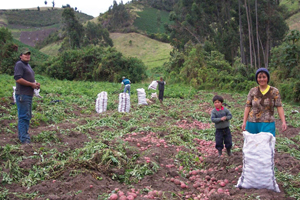 Development 3.0: Development practice in transition
Development 3.0: Development practice in transition
Following over a half-century of “technology transfer” and “participation”, the paradigm of agricultural modernisation appears to have reached a limit. Directly related to growing concerns over the world’s food systems, there is a sense of welcomed change taking place. At the centre lays a commonly neglected resource: the creativity embedded in peoples’ daily practices and … Read more
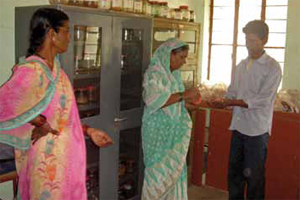 True champions
True champions
Farmers’ knowledge and experience has not been adequately translated into policies and strategies by governments, the private sector or civil society organisations. In general, not enough is known about these transformation processes. Is there a glass ceiling that limits the spread of good agrobiodiversity practices? The agrobiodiversity@knowledged programme, started by Oxfam Novib and Hivos, aims … Read more

